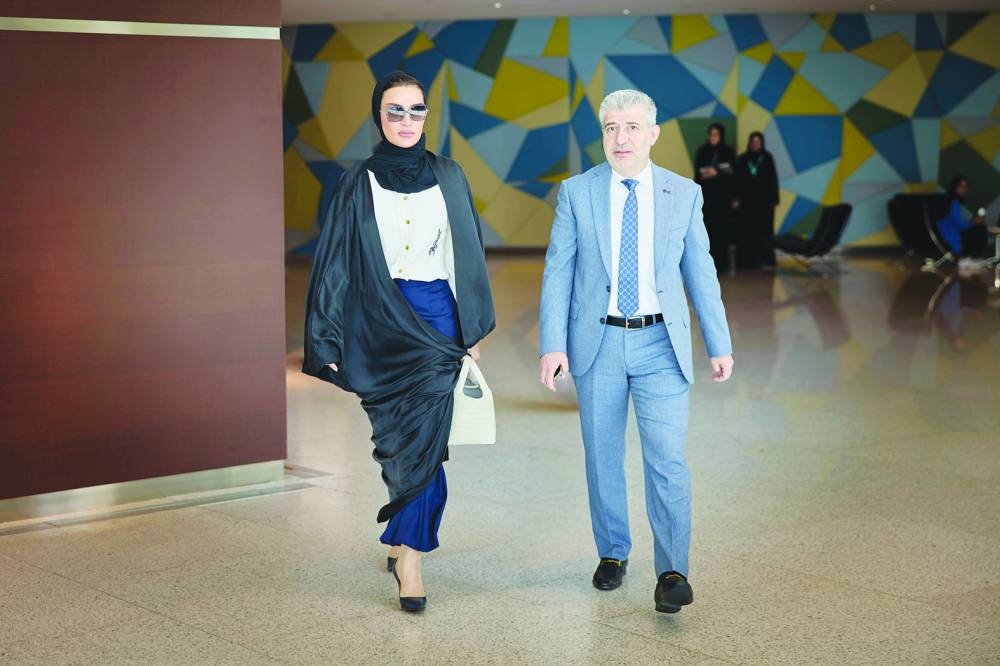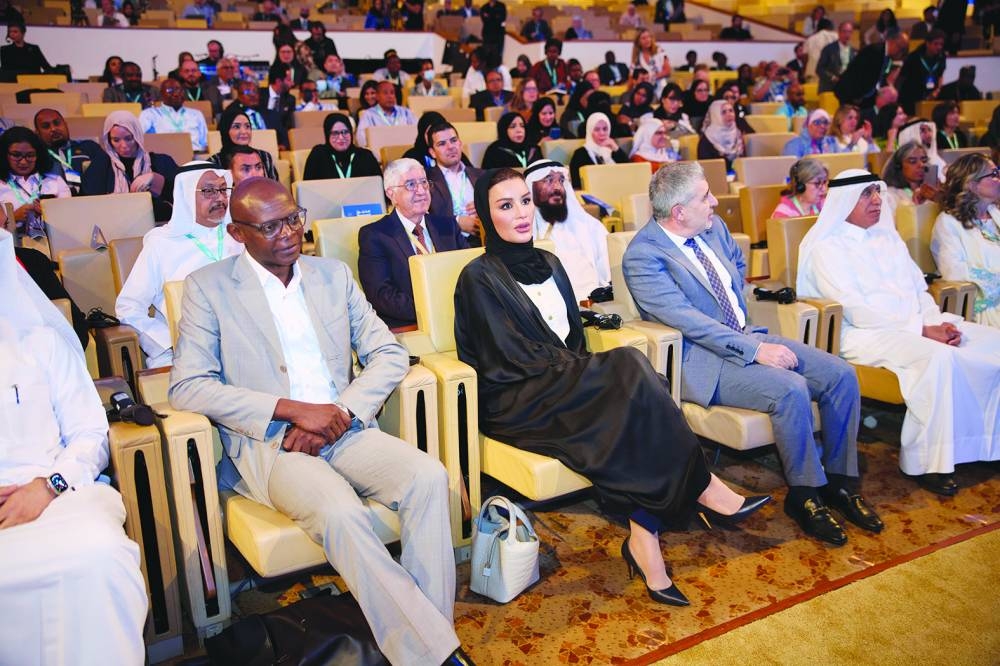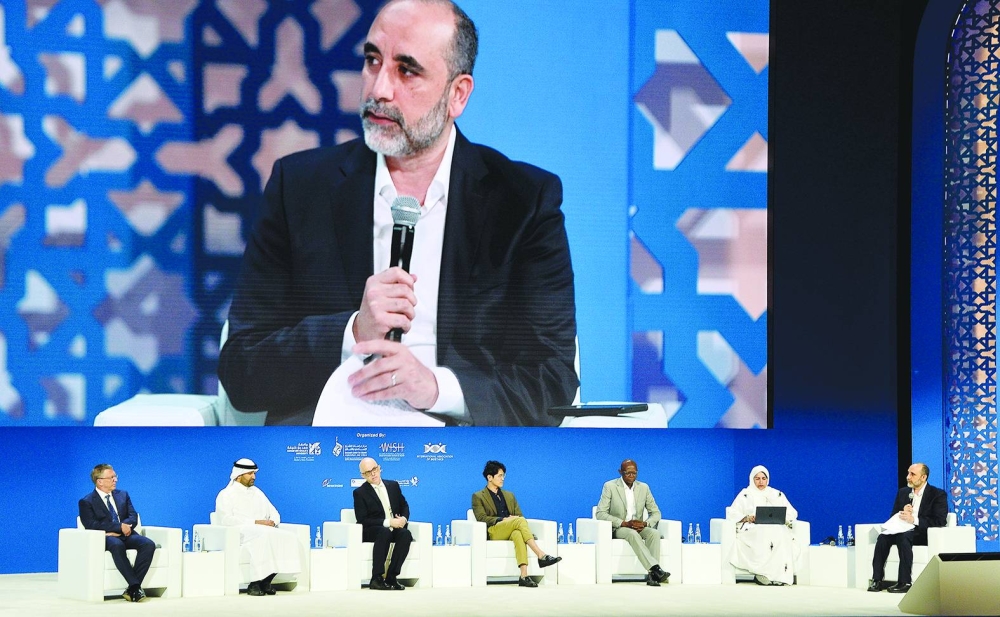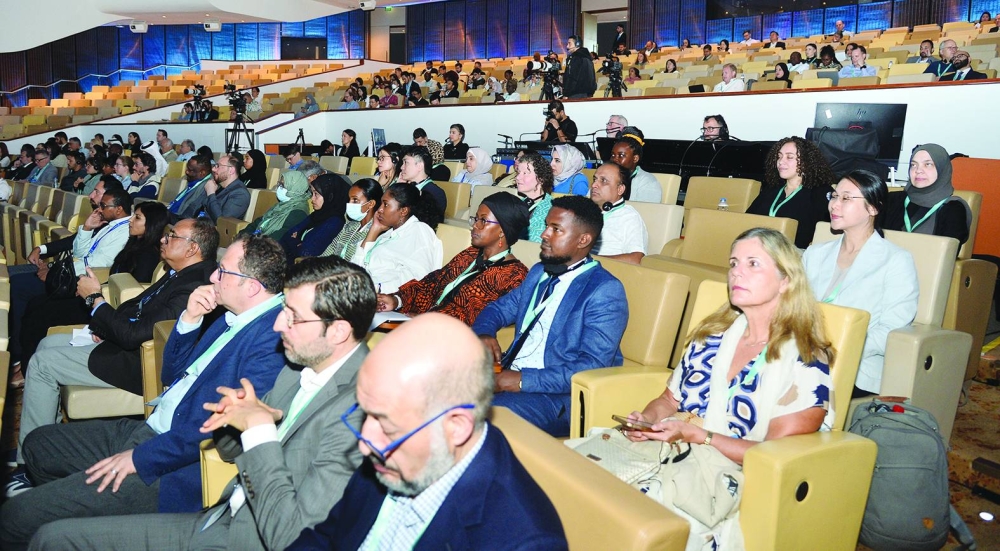Her Highness Sheikha Moza bint Nasser, Chairperson of Qatar Foundation (QF), attended Tuesday the inauguration of the 17th World Congress of Bioethics organised by Hamad Bin Khalifa University in collaboration with World Innovation Summit for Health (WISH).
The three-day Congress, held for the first time in the Arab World and the entire Middle East, has brought together over 1,000 participants - including bioethicists, researchers, and stakeholders.
Speaking at the opening ceremony, Dr Ahmad M Hasnah, president, HBKU, said: “The role of religion is a crucial one in the biomedical area. Discussions shaping bioethical policies should not neglect people’s beliefs, as they are a part of their lives. It is important that they are captured in the development and creation of any policy.”
The Congress is hosted by HBKU’s Research Centre for Islamic Legislation and Ethics (CILE) in collaboration with WISH the global health initiative of QF. Sponsored by the Ministry of Public Health, Hamad Medical Corporation, and the Primary Health Care Corporation, this edition of the Congress is organised with support from IAB.
Following the address by HBKU president, a panel discussion involving experts from various organisations discussed different perspectives on bioethics. Sultana Afdhal, CEO WISH, Dr Voo Teck Chuan, communications officer of the International Association of Bioethics, Dr Mohammed Ghaly, professor / head of CILE, Dr Said Ismail, acting president and chief scientific and operations officer, Qatar Precision Health Institute, Dr Caesar Atuire, president, IAB, Dr Khalid Fakhro, chief research officer, Sidra Medicine and Dr Julian Savulescu, director, Centre for Biomedical Ethics, National University of Singapore took part in the discussion.
The event provides platform for dialogue centred on vital issues in bioethics, especially in religious and cultural contexts. The event reinforced its theme of “Religion, Culture and Global Bioethics” with a special panel discussion, which featured members of IAB executive leadership delving into the significance of the theme alongside distinguished figures from across academic and bioethics research.
WISH CEO Afdhal, said: “We are delighted to see months of hard work come to fruition as we witness the gathering of the world’s most renowned bioethicists and scholars in Qatar for 17th edition of the World Congress of Bioethics. Balancing international perspectives and evidence-based best practices in health with those rooted in the religious values and cultural traditions of Qatar, the Gulf region, and the broader Arab-Muslim world has been a cornerstone of our approach at WISH.”
The Congress helped participants exchange insights on prominent and emerging topics in bioethics, including the use of artificial intelligence in healthcare, how healthcare can be practiced safely in regions impacted by war and armed conflict, and public health ethics in light of Covid-19 and other pandemics. Prominent experts from the Middle East, North Africa, and Asia are participating in the discussions and offer regional perspectives on the wider field and issues such as disability, environmental, genetic, and genomic bioethics.
Mohammed Ghaly, head of CILE and chair of the Congress, added: “This special edition of the World Congress of Bioethics gives us the opportunity to approach the study of bioethics from a unique context. Our discussions revolve around the understanding that our field is not only a secular discipline, but also one that acknowledges the importance of respecting diverse socio-cultural and religious-moral traditions.”

Her Highness Sheikha Moza bint Nasser and Dr Ahmad M Hasnah, president, HBKU at the 17th World Congress of Bioethics. PICTURE: Aisha al-Musallam

Her Highness Sheikha Moza bint Nasser attends the opening of the 17th World Congress of Bioethics. PICTURE: Aisha al-Musallam.

A panel discussion at the inaugural session. PICTURES: Shaji Kayamkulam

A section of the audience.

